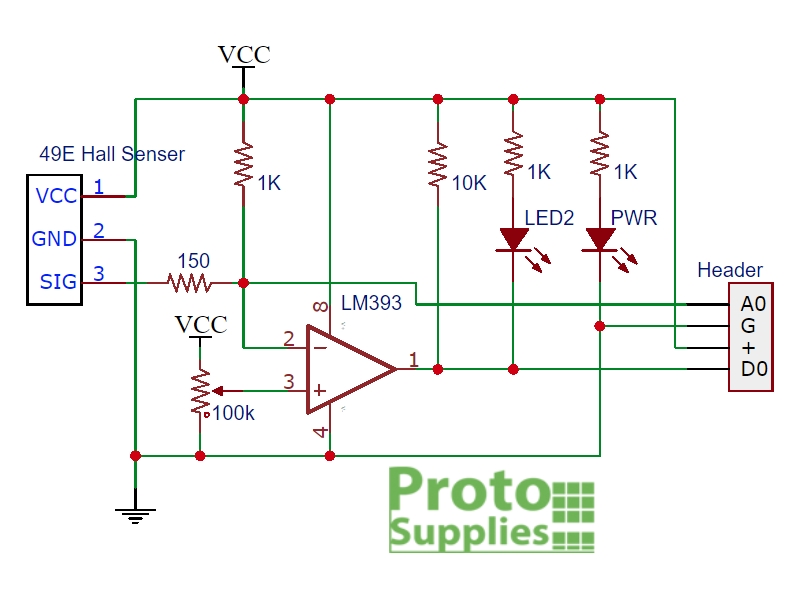Since nobody else has addressed your example directly, and to use it as an example, in addition to the other observations about these two items, let's also take note of :
Hall-Effect Sensor Analog 49E
The 49E sensor can detect the magnetic N/S pole and relative strength of a magnetic field and outputs an analog voltage
- Vcc Range 2.3 – 10V
- Output : Analog 1.9mV/GS (± 0.2mV/GS)
Digital Hall Effect Sensor Module
3144 sensor detects presence of magnetic field and outputs logic level.
- Vcc Range 4.5 – 24V
- Output : Open Collector
Linear Hall Effect Sensor Module
Detects N/S poles and relative strength of a magnetic field.
- Vcc Range 3.3 – 5V
- Output : Analog 2.5mV / G PLUS digital output
- Includes 49E sensor plus everything in the schematic below :

So the sensor you've linked provides an analog signal, allowing you measure the magnetic field strength. The digital module provides only an open-collector output (ie: ON/OFF) which indicates either the absence or presence of a magnetic field above some threshold of intensity. These are entirely different functions which you would use for entirely different applications. The digital module also works with VCC up to 24V, which makes it handy to integrate with 24V automation systems. The linear module provides an analog output as well as some indicators and an additional digital output, but is capped at 5V Vcc (whereas the raw module accepts up to 10V).
Why would you choose either? What do you need to do? Do you want to check for the presence of a magnetic field only, or do you also want to measure its intensity? Or both? The modules do some of the work for you and, in the case of the linear module, actually give you an additional output that the raw sensor does not. It's up to you to decide which of these serves your needs.

